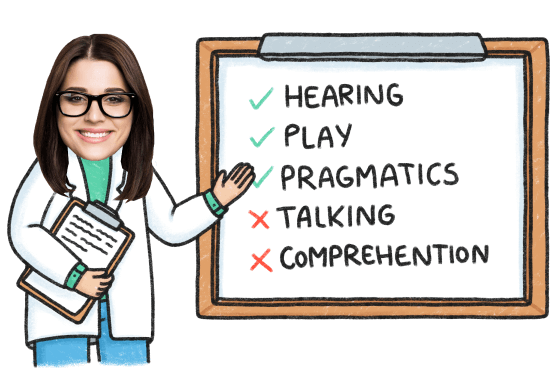Please Don’t Judge Me or My Special Needs Child
Feb 6, 2022 We are answering our reader's question: My family doesn't understand my child's needs no matter how much I try to explain. They want to discipline his meltdowns and stimming. I don't want my son be judged by mean people.
Unfortunately, our world is filled with people who are not accepting, who judge, make comments and are just rude when they see a child behaving a certain way in public. Other than making them take etiquette classes, there’s not much we can do to change their reactions to children with special needs.
I always tell my clients’ families that even though we cannot change how other people react, we can choose how we react in those situations. The truth of the matter is that, unless you have a special needs child, you have no idea how you’d react or how difficult it is to deal with the reactions of others.
Background
First, to understand why people don’t understand ‘special needs’ you should know that the definition of ‘special needs’ differs from state to state. As a result, if people don’t get a clear message, they don’t understand it, and usually don’t know how to act in the presence of a special needs child.
The term usually falls under the definition for the term disability, as it does in the Americans with Disabilities Act. The Merriam Webster Dictionary defines special needs as “any of various difficulties (such as a physical, emotional, behavioral, or learning disability or impairment) that causes an individual to require additional or specialized services or accommodations (such as in education or recreation).” This very general definition doesn’t begin to spell out the different types of special needs children or what special education can cover.
The more you practice, the more it carries over!
Try the Speech Blubs app for fun and engaging therapy sessions with your little one.
Boost Your Child’s Speech Development!
Improve language & communication skills with fun learning!

Create Handouts for Your Family
The first thing I’d recommend is to provide handouts to your immediate family members. Before I met my in-laws, I’m not sure they really had any idea what a speech-language pathologist did and weren’t aware of the different types of disorders that there are. My husband, in fact, told me that he didn’t think autism existed. After a number of conversations, he has since changed his mind and can now tell me when he thinks a child is on the spectrum.
I have several handouts for various disorders that I’ve either created or have received from conferences that I’ve attended. Whenever I have a family enter my office, I make sure I give them as much information that I can. I encourage them to make copies and show to their immediate family members so they can have a better understanding of any behaviors or symptoms that may occur.
Does this always help? No. Is it practical to give to strangers? No. However, It is worth a shot and may clear certain things up for them.
Accept Your Special Needs Child
Most families will ask me to explain the disorder and expectations to family members that are struggling. I had one family whose child was recently diagnosed as being on the Autism Spectrum. The father was having a VERY difficult time accepting the diagnosis and was treating his son differently because of it. The mother asked him to come to therapy so he could talk with me, in hopes I could “snap him out of it.”
The first thing I did was ask the father to watch the session from outside the room (we have earphones so that the parents can listen in on the session, if they choose). I wanted the father to see the positive attributes of his son (caring, respectful, and smart) instead of the negative behaviors that would occur in the social setting.
Don’t judge what you don’t know. If you care, learn about my son. To know him is to love him.
Amy Stuart
During the session, the boy picked two action heros to use for pretend play. I asked him to name the characters – he did, “daddy” and “Xavier.” I asked why he chose the “Batman” character to be his dad. He responded, “because I love him.”
That’s all it took. The father was in tears after the session was over and the mom reported that he had a different outlook on his son’s diagnosis after that session.
Family members and strangers often see the negative sides of children when they are stimming, screaming, or having a tantrum. They do not see all of the great things those children do and how smart they really are. When we bring those positive attributes to light, it helps with the acceptance and acknowledgement of the disorder.
Ignore the People Who Don’t Understand
This is probably the only other advice I can give you – ignore it. People are going to stare, make comments, or judge silently and there’s nothing we can do about it. Focus on your child. Do what they need in order to decrease the symptoms or help them relax. If you are stressed or irritated, they are going to pick up on that feeling.
Try and stay as calm as possible in the moment. It’s easy to get caught up in your emotions and lash out at the woman who has been staring for the last 20 minutes, but I promise you, it won’t make you feel better and will just stress and frustrate you even more.
Have a question for our Speech Therapists?

